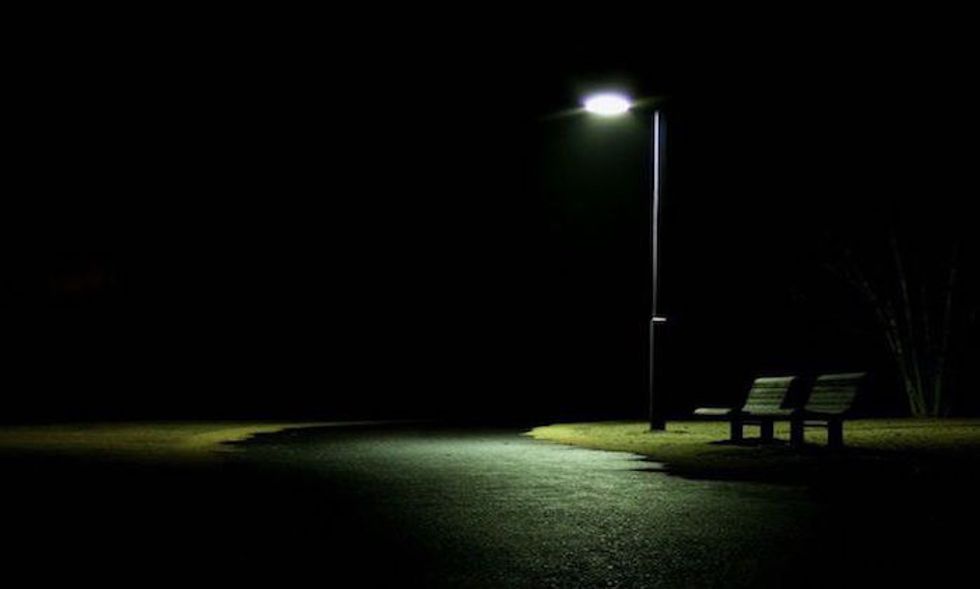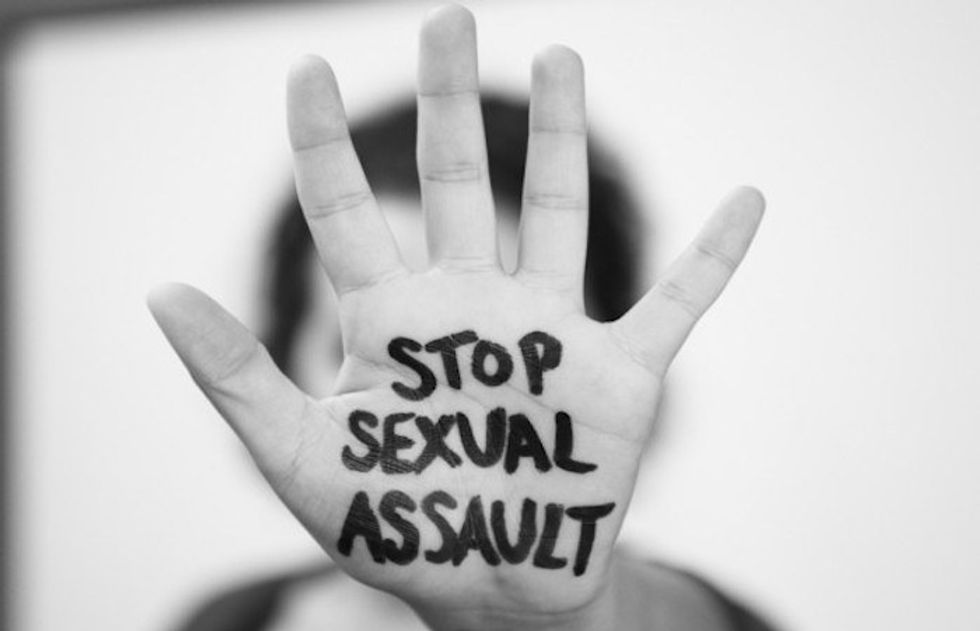Sexual assault isn't a subject most people attempt to breach over a phone call, but an enlightening conversation with a friend prompted me to initiate conversations about this criminal epidemic that affects women and men alike, everywhere. Whether you live in a college town or a bustling city, sexual assault is a harsh reality that many consider a very probable possibility the minute they feel unsafe in a number of settings and situations. Parking lots in broad daylight to dimly lit apartment corridors were only a few of the answers I received when I asked my anonymous interviewees, "Where do you feel unsafe?" Some were quick to answer, but others, male and female, were hesitant to open the conversation to a topic most people would consider too contentious to debate. When I assured them that there was no right or wrong answer in this conversation, many relaxed and offered their two cents on this stigmatized topic.
I gave my interviewees five levels on a general spectrum of safety and I asked them to name a place for each. These categories were Safe, Less Safe, Neutral, Unsafe, and Dangerous. If they were males, I asked them to also name places in which they thought females felt unsafe too. I didn't restrict or offer limitations to their answers, because I wanted to initiate a free-form conversation at point blank about sexual assault organically and without any rules. Afterwards, I asked them, "If you could, what would you do to prevent sexual assault?"
Unsurprisingly, they all named their homes as being the safest place. Two out of the ten interviewees went as far as saying that student resources on their campuses were also safe places, but for the others, 'campus' was classified as 'Neutral' or 'Unsafe.' A place's safety was largely determined by two factors: lighting and foot traffic.
(Image courtesy of dtutimes.files.wordpress.com.)
If a location was poorly lit and was nearly or completely deserted, nine out of the ten interviewees agreed that these were locations with an unbearable amount of potential to be alarming and borderline threatening. The single interviewee who believed lighting and population weren't a factor was a male, but he altered his answer when I asked him, "What if you were a girl?" With absolute confidence, he replied, "That's a different story."
Whether a location fell in those five aforementioned categories or not, it was interesting to note the wide disparity between answers provided by females and males, respectively. All eight females who were interviewed were quick to name places and situations in which they felt unsafe, but both males who were asked the same question hesitated to offer their opinions on places that made them feel unsafe. Understandably, both males felt the pressures of saying something insensitive, but their inability to name places where they felt sexual assault was a possibility was astonishing. It brought to mind the very tangible element of gender differences and privileges in the conversation, but that could be further explored in a multitude of ways another time.
(Image courtesy of funzine.hu.)
Unlike lighting and foot traffic, alcohol and partying were neutral factors and weren't answers that were offered readily. Irresponsible alcohol consumption is an experience most of the interviewees shared, but females often added that they hardly ever drank to the point of blacking out and losing consciousness. "Being a girl, weaker, and tinier is a thing. If a guy really wanted to, he could take me out," answered one interviewee. Although her answer was one among many about alcohol and the possibility of sexual assault, her response encompassed what many others felt.
Whether alcohol was an excuse or a factor in sexual assault, interviewees universally acknowledged that alcohol was not an excuse. While inebriated, interviewees agreed their judgement was impaired. Two participants even offered to say that they were bolder when they were drinking, but they could not imagine a situation in which they wouldn't be able to refuse consent or force themselves upon someone. "You make a choice to drink more and do stupid sh-t. The choice is still there, so you can't blame it on vodka," said one interviewee.
(Image courtesy of The Daily Cougar.)
Although talking about factors and situations that could lead to sexual assault made all of my interviewees mildly uncomfortable, they were all eager to discuss ideas to prevent sexual assault. None of them considered punishment, but rather, they were quick to recommend education about gender and general safety in addition to investing more attention to emergency services on campuses. In the same fashion that all undergraduates are required to take general prerequisites, one interviewee suggested that a class about sexual assault should be offered too.
All of the solutions proposed, as different as they were in their details, revolved around the idea of opening the topic for discussion and encouraging people to voice their concerns and questions in a welcoming and tolerant environment.
The most important thing, undoubtedly, was about having an open dialogue about sexual assault.






















